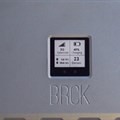How Africa's digital divide is being diminished, one innovation at a time
Why Africa will be home of the next feature phone revolution
In the first session, we heard from the fittingly named Sebastien Codeville, China-based CEO of the KaiOS web-based operating system, which is expressly run on low-cost devices.
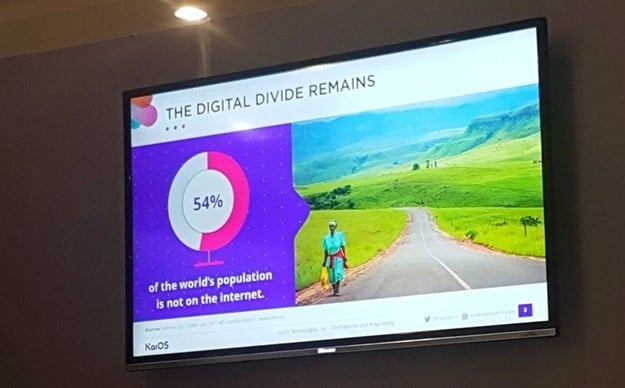
The young company, founded in June 2016, works on diminishing the digital divide because while instant connectivity is second nature to everyone who will read this article, more than 50% of the global population still doesn’t have access to internet.
Codeville says this is in turn impacts on global inclusion factors like gender equality, democracy, and access to education. That’s why they’re doing what they can to make digital services a reality for all, largely based on bringing down the cost of internet access through cost of both phones and data plans.
Accessible user experience is another important aspect to consider, as voice search is more popular where literacy is low.
Bringing 3G, 4G and 5G internet to 2G devices
Designed for traditional touch handsets, KaiOS is effectively bringing popular apps like Facebook, Google, Youtube and Twitter to feature phones.
But therein lies another problem – once access is ticked off the list, there’s another hurdle to face, as Codeville stated that less than 1% of apps accessed outside of the Western world feature local content.
So there’s a cultural mismatch as much of what’s advertising in Europe and the US just doesn’t make sense in Africa and Asia.
The smart feature phone device
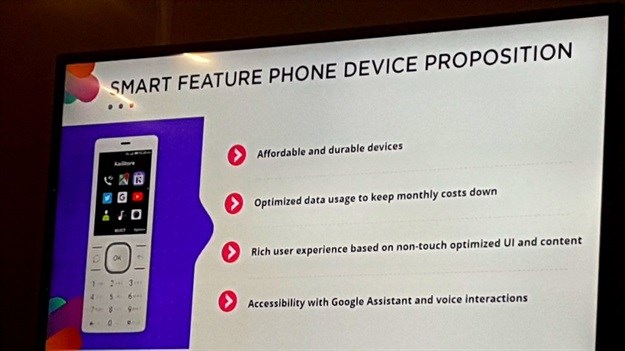
If you’d like to get involved in bringing more local content where it’s needed, there’s an app store option in the Kaistore. Locally, Codeville said to watch for the KaiOS MTN and Orange smart feature phones, launching across the continent next year.
Excited to announce our expansion in Africa - with the KaiOS powered devices, along with the KaiStore! Learn more here. https://t.co/m5XeM3JupJ
— Sebastien Codeville (@SCodeville) November 14, 2018
Sharma began by asking attendees to imagine how the way we do business on the continent would change if we didn’t have to factor in excessive airfare prices and visa admin.
Connectivity = ease of African business collaboration
Then take that idea of connectivity and collaboration with other markets, opportunities and people and you see the wealth of knowledge offered by a connectivity landscape.
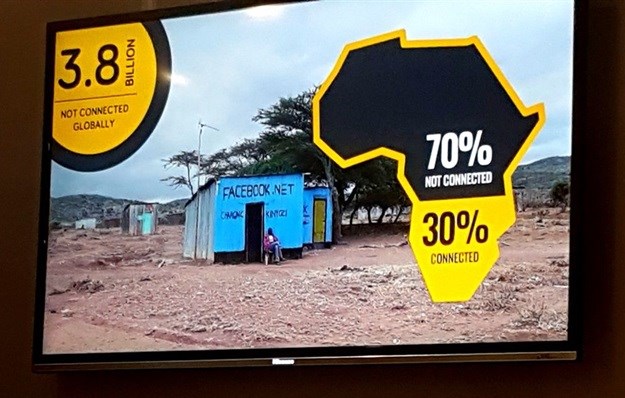
Unfortunately, Sharma said there’s still lots of work to be done to bring the bulk of the African population online.
So the six-year-old Nigerian looking to compete in the business world in 2030 with a Norwegian who has grown up with technology is already at a disadvantage.
‘Inequality starts before birth’ - Dr. David Harrison from @DGMurrayTrust shared important information with us for the #YouthReport2018 #InstantGrass@JamesLappeman @instantgrass @Dali_Tembo @ramneekHEAIDS @ladylilac__ @AlphabetSoupSA @bonchiachanza @Leigh_Andrews @HDIYouth pic.twitter.com/utZyptPc1L
— UCT Unilever (@UCTunilever) October 12, 2018
Or for those who switch off their mobile data settings to avoid high costs.
Where's our Wi-Fi?
The main barriers to connecting the unconnected are access and affordability.
It takes someone in Africa 4 days of work to earn 1Gb of internet. In the US and Europe, it takes just 2 hours to do the same.https://t.co/xcUVRNTB9B pic.twitter.com/AECvBCGmCt
— Erik Hersman (@whiteafrican) October 29, 2018
That’s where the BRCK hardware, complete with rugged microserver storage, comes in. Designed in Africa for Africa, it’s ideal for low-infrastructure environments with low internet connectivity.
Even better? It offers free content and connectivity, as they would rather have the users spend the currency they do have – time. They earn points for premium content as well as connectivity that can be redeemed immediately or saved for later by performing micro-tasks on the platform, like filling out surveys or watching sponsored content.
Sharma concluded with the question, what would happen if the unconnected were connected?
Including Africa in the World Wide Web
There are potential positives in almost every sphere of life, from improvement in government services to cutting time queuing thanks to access to mobile banking, as well as economic development due to technological advancement and improved literacy, leading to a more educated continent.
How free WiFi is changing Africa ~ https://t.co/Y036gPAD1n pic.twitter.com/utP9IC3xWe
— Brainstorm Magazine (@Brainstormmagza) September 14, 2018
In rural areas, sometimes the only time they see ‘www’ is on a billboard for a betting website.So it’s not necessarily a pretty picture, but there’s a wealth of impact if internet access comes with the right education on potential outcomes.
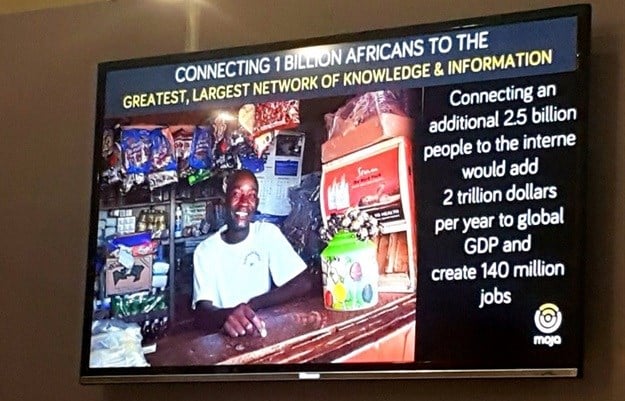
It’s easy to see why BRCK is one of Time magazine’s first ever 50 Genius Companies of the Year.
About Leigh Andrews
View my profile and articles...


